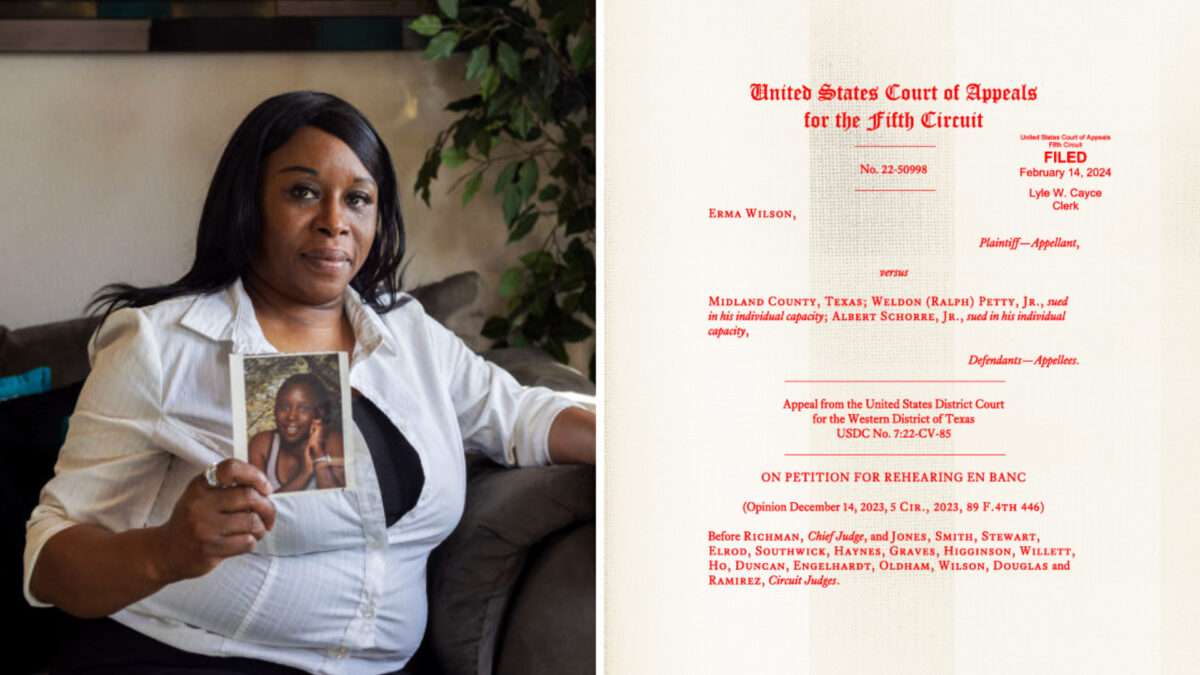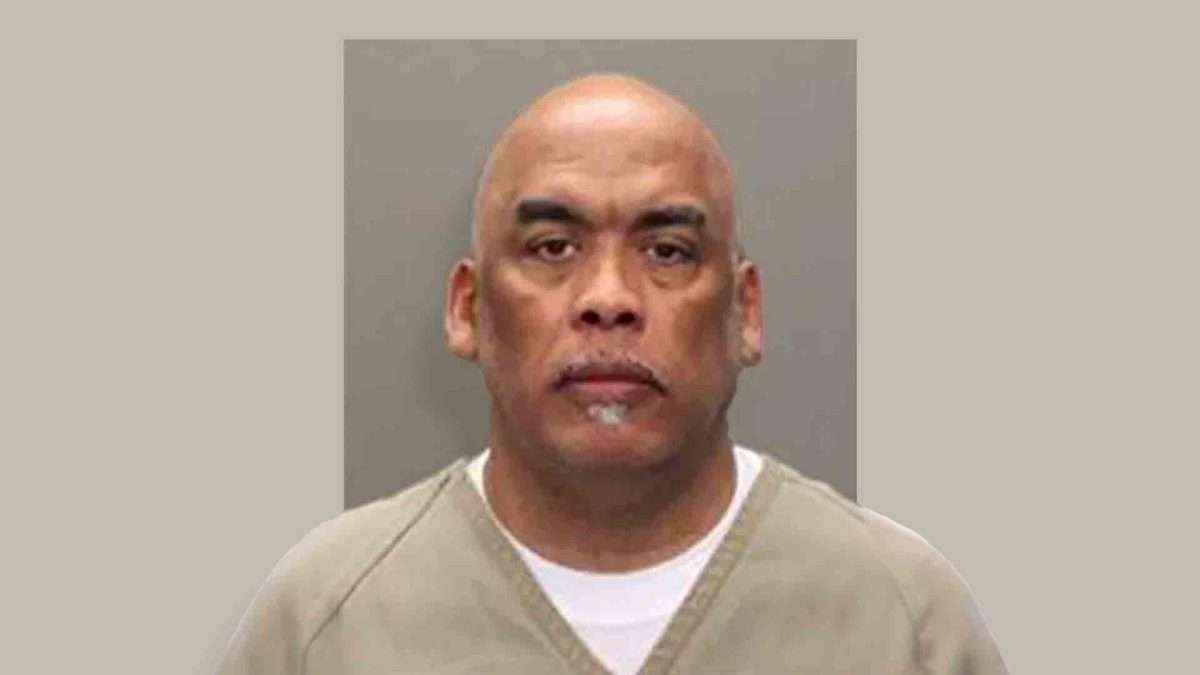N.J. Businessman Indicted for Sopranos-Style Economic Development Racket

A powerful New Jersey businessman has been accused of Mafia-like behavior in order to enrich himself and his associates on the taxpayer's dime. But is it all that different from business as usual?
At a press conference this week, New Jersey Attorney General Matt Platkin announced a 13-count indictment, with charges including racketeering and extortion, against six defendants—chiefly George Norcross III, whom the New Jersey Monitor referred to as "a Democratic kingmaker widely regarded as New Jersey's most powerful unelected person." In an impressively bold move, George Norcross attended the press conference and sat in the front row, apparently even refusing to switch seats when asked by someone from Platkin's office.
According to the indictment, George Norcross has "led a criminal enterprise" since 2012, whose members "would extort others through threats of economic and reputational harm" in Camden, New Jersey. Specifically, in 2012–13, George Norcross and other indicted co-conspirators "used their political influence to tailor New Jersey economic development legislation to their preferences."
The Economic Opportunity Act of 2013 expanded the state's existing economic development grant programs, allowing a developer to claim "a credit of up to 35 percent of its capital investment, or up to 40 percent for a project located in a Garden State Growth Zone," defined as "the four New Jersey cities with the lowest median family income"—which would include Camden, the state's poorest city. The credits were intended to bring companies to the state or keep them from leaving. Recipients could claim the credits or sell them to other New Jersey taxpayers.
In 2019, The New York Times found that before that law passed, one attorney "was allowed by lawmakers to edit drafts of the bill in ways that opened up sizable tax breaks to his firm's clients." That attorney's firm was Parker McCay—whose CEO was George Norcross' brother, Philip Norcross, who is also indicted. The indictment alleges that after the law passed, Philip Norcross told a group of people, "We re-wrote a tax credit law…that says in essence, if you come to Camden, we're going to give you one hundred percent tax credit for all capital and related costs" over 10 years. "It will cause real havoc, it's unlimited."
Once the law passed, according to the indictment, the defendants "extort[ed] and coerce[d] others" in order to obtain their property along the Camden waterfront, "then occupied the properties they obtained interests in and sold the tax credits they obtained for millions of dollars."
George Norcross also apparently leaned on members of the Camden city government—including then-Mayor Dana Redd, who is also indicted—to pressure owners and developers to sell by denying necessary building permits or publicly disparaging them.
In one given example, George Norcross allegedly threatened a developer who refused to sell, saying he would "f**k you up like you've never been f**ked up before." City officials also denied him a permit to redevelop another site he owned, at Philip Norcross's insistence.
In the end, that developer apparently sold the rights to tax credits that eventually totaled $240 million, for a fraction of that amount. On one property, he sold credits for $1.95 million that would eventually total $18 million.
If this all sounds like a plot from The Sopranos, well, it basically is: For much of its run, the mobsters at the center of that show made money from a waterfront rejuvenation project in Newark, obtained through underhanded dealing with a crooked state official and which afforded plenty of no-show jobs and opportunities for graft.
The allegations against George Norcross are shocking, and yet also unsurprising. After all, the entire affair originated with a state economic development program, which already bears at least a passing resemblance to a Sopranos-style racket.
In 2019, The New York Times found that "over five years, 12 companies threatened to leave New Jersey" for New York—with each company even listing the exact same office complex as its intended destination—"unless the state provided tens of millions in tax credits." In each case, the New Jersey government agreed, totaling over $100 million in taxpayer money, and each company stayed. But the Times found that "nearly all of the 12 companies never seriously considered moving to New York." The leasing agent for the New York office complex even acknowledged, "We are aware that often times the tenant has no intention at all of relocating."
State economic development incentive programs are often sold on these sorts of "but for" incentives—as in, but for this tax break or grant, this company would go elsewhere. But these are rarely actually the deciding factors in a company's decision: In a 2018 paper, Timothy Bartik of the W.E. Upjohn Institute for Employment Research found that "typical incentives probably tip somewhere between 2 percent and 25 percent of incented firms toward making a decision favoring the location providing the incentive. In other words, for at least 75 percent of incented firms, the firm would have made a similar decision location/expansion/retention decision without the incentive."
Companies lobby for state-level handouts, even if they were likely to set up shop in that state anyway. And even by the state agencies' own numbers, the expenditures are rarely worth the cost.
"Beyond the state-specific political ramifications, the case also highlights a persistent problem in corporate subsidy programs that extends well beyond New Jersey: They're too easily corruptible, and they create a vicious feedback loop between political actors and politically connected corporations," writes Pat Garofalo in the Boondoggle Substack. "There's a very clear connection in academic literature between corporate subsidies, political donations, and ultimately corruption."
The George Norcross case, Garofalo writes, "highlight[s] the nexus between corporate tax handouts and corruption that is very often there but not usually this blatant."
Ultimately, the entire affair would just be a lurid story but for the fact that it involved hundreds of millions of dollars in state incentives which will ultimately be borne by New Jersey taxpayers.
The post N.J. Businessman Indicted for <i>Sopranos</i>-Style Economic Development Racket appeared first on Reason.com.









